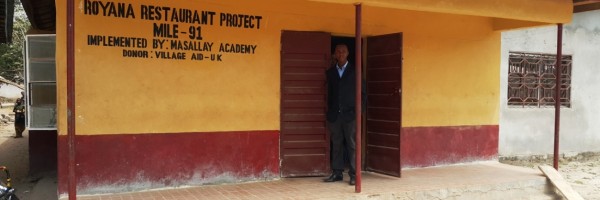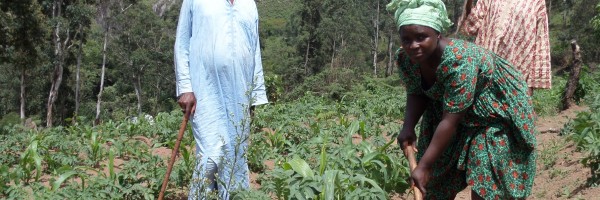Violent conflict between Africa’s farming and herding communities is escalating. As people are killed, crops and animals are destroyed and poverty ensues, Village Aid and MBOSCUDA are striving to restore peace.
Violence is raging through large swathes of West African countryside as the battle for scarce natural resources degenerates into severe conflict. Ineffective government, cultural and religious tensions and poor resource management are compromising small-scale agriculture, essential to African development.
Village Aid, a UK-based international development charity, and the Mbororo Social and Cultural Development Association (MBOSCUDA), a human rights organisation in north-west Cameroon, have launched a joint project called “In Search of Common Ground”. The project seeks to protect precious natural resources, enhance crop and livestock production and encourage conversation between farmers and Mbororo herders. “Dialogue platforms”, neutral spaces where conflicts are resolved before they escalate, are also being established. By facilitating the shared use of natural resources, such as rotating land use between cattle grazing and crop growing, and using cattle manure to produce biogas for fuel, Village Aid and MBOSCUDA are building bridges between the farming and herding communities.
It is important to understand more about the conflict and whether the solutions are working which is where Village Aid and MBOSCUDA’s research comes in. Cameroon has enjoyed comparative political stability since independence in 1960 with only occasional skirmishes and posturing with Nigeria since 1993. Yet in a survey of 840 households, the largest study of its kind ever conducted in the country, it was found that a staggering three-quarters of households have recently been involved in conflict, compromising education, health, income and food security. The crops of 85% of farmers have been damaged and almost 30% of herders have had their cattle killed, injured or stolen, resulting in a collective loss of XAF 64,520,000 ($107,000) over the last three years. This is around 700 times the average farmer’s annual income and 21 times a wealthy herder’s income. Many farmers have defaulted on loan repayments as cattle have destroyed their crops. One says: “The cows came into my farm and destroyed everything. I am unable to pay for what I borrowed, but I keep paying the interest every month.”
Education is hindered as many women are no longer able to fund their children’s schooling. Health is also compromised as stress, insomnia and malnutrition ensue. One farmer reports: “The repeated destruction of my crops has brought a lot of hunger in my household. My family suffers from food shortages now and I don’t have good health due to stress.”
Access to water and land plays a central role in the conflict. Mbororos rely on the availability of free grazing space as they are denied formal land ownership. Herders report that government officials request huge sums of money for land certificates, which they cannot afford, and boundaries between farming and grazing land are often disputed. Both communities deny responsibility for building fences and so cattle often wander onto farmland, trampling the crops.
Farmers and herders employ unsustainable farming practices; herders allow cattle to graze next to water points and farmers clog water sources with silt. Drinking water is becoming scarce as few households have access to a tap. Over 97% of cattle use the same water points as people, contaminating the water and exposing communities to typhoid and other deadly diseases.
The conflicts can be extremely violent. Farmers wounding and poisoning cattle, herders destroying crops, sexual assaults on women farmers and property damage have all been reported to researchers. “Once my child was taken by a Mbororo man… and severely beaten and he was bleeding through his mouth,” says one person. Another says: “A shepherd pierced my sister with a knife and the intestine came out”. One female farmer also admitted to severing the hooves of a herder’s cow.
Such practices occur in the context of ineffective state-run conflict mitigation structures. The Cameroonian government encourages legal action rather than amicable settlement, which most farmers and herders cannot afford. Data show that use of court, traditional and administrative, authorities is the least preferred mode of conflict resolution as the process is often lengthy, costly and unfair. Judicial processes are described as “frustrating” and “unrewarding”, and herders resort to state bribery to win battles with farmers. This costs herders huge amounts of money and does nothing to resolve the deep-rooted conflict.
Find out more about our Cameroon programme here.
This is an extract from an article written by our communications assistant Jess Street for the world weekly magazine. View it in full here.


